Book Review: "A Very Easy Death" by Simone De Beauvoir
5/5 - One of the greatest books I have ever read...
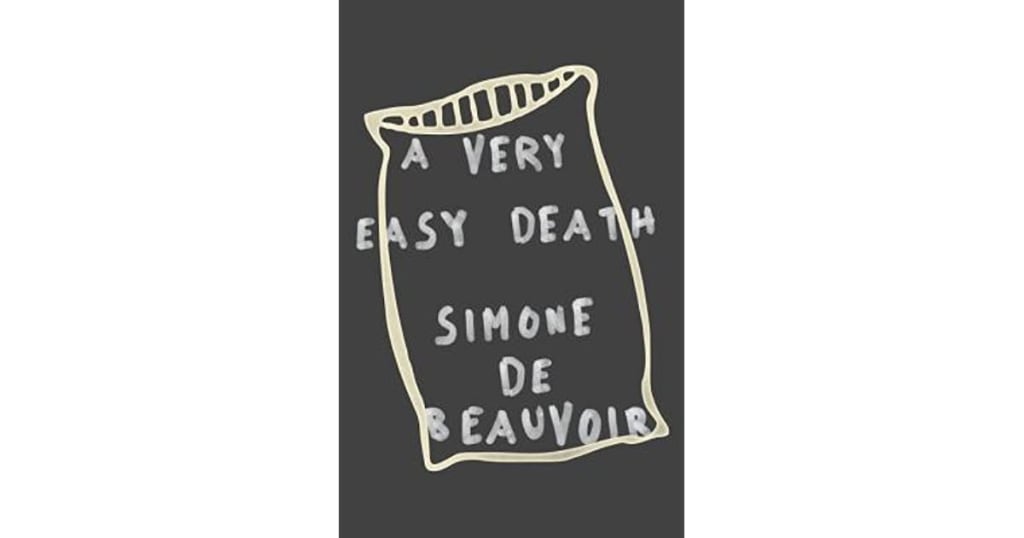
Simone de Beauvoir is one of the great writers of the twentieth century and I have read many of her books in the past few years. One of the books I loved by her was "The Second Sex" and honestly, I thought it was really well written and made a lot of good points. Simone de Beauvoir was an incredibly articulate woman and her knowledge of her own culture, time and place, her knowledge of her own philosophical context and the way in which people interact, remember and operate made her a woman way ahead of her own time. This book deals with the death of her mother. I was initially not very overly enthusiastic about this, being sure that Joan Didion's book about the death of her husband - "A Year of Magical Thinking" - would be better written. But I was wrong. I enjoyed this book a lot more because it is far more graphic, it is based more in realism and you can actually see it happening as the story goes along and the mother becomes weaker and weaker.
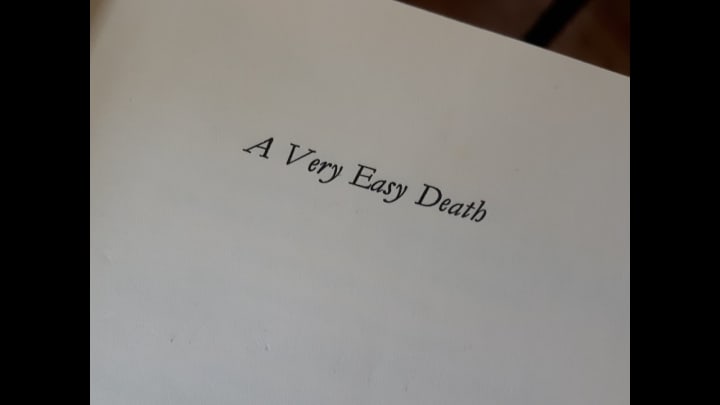
Simone de Beauvoir's writing is not only raw and intensifies the most difficult and confusing emotions into body language, facial expressions, small actions and these tiny little reactions that people have towards the mother as she recounts the day or the week or the time she has spent without her daughters. It is upsetting yes. but now I want to show you that in action by looking at some quotations from the book that I think are incredibly emotional and raw:
"Thinking against oneself often bears fruit; but with my mother it was another question again - she lives against herself. She had appetites in plenty: she spent all her strength in repressing them and she underwent this denial in anger. In her childhood her body, her heart and her mind had been squeezed into an armour of principles and prohibitions. She had been taught to pull the laces hard and tight herself. A full-blooded, spirited woman lived on inside her, but a stranger to herself, deformed and mutilated."
You can practically breathe in this quotation like crisp winter air in the mid-November outdoors. It's one of those quotations that you cannot just skip over, once you've read the paragraph you have to go back and read it again because you have an idea that this mother, though repressing herself again all of this - she's still a woman deserved of her daughter's love and respect. It is a brilliantly written paragraph on character.
"I went home, feverish with flu. Leaving the overheated clinic i had caught a cold in the autumnal dampness: I went to bed, stupefied with pills. I did not switch off the telephone: Maman might die at any moment, 'blown out like a candle' said the doctors and my sister was to call me at the least alarm. The bell woke me with a start: four in the morning. 'It is the end.' I picked up the receiver and heard an unknown voice: a wrong number. I could not get to sleep again until dawn. At half-past eight the telephone bell again: I ran for it - an utterly unimportant message. I loathed the hearse-black apparatus: 'Your mother has cancer. You mother will not get through the night.' One of these days it would crackle into my ear. 'It is the end.'"
This is obviously a look into the future with fear and anxiety. She imagines herself awakening to this phone call, the only one that she dreads so much that she starts seeing her telephone as the colour of the hearse that will, one day, carry her mother. She is obviously wrapping her mind around this and letting it impact her being - it is unhealthy yes, but it is real. Not a single person I know would be able to sleep if their mother was in peril.
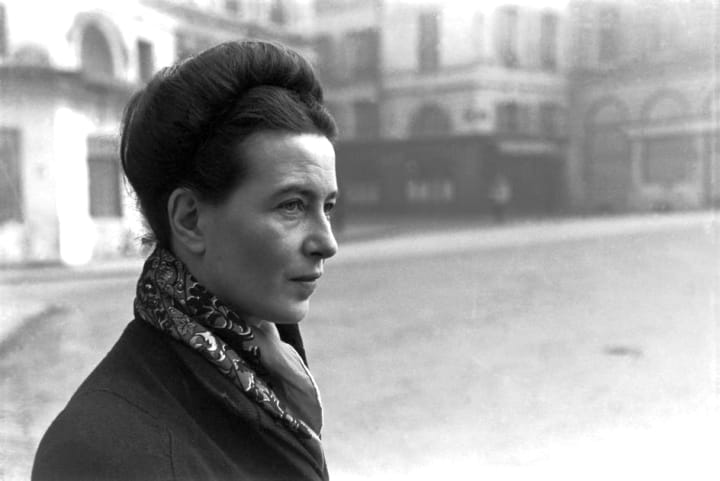
When my mother had a heart attack and in hospital, I could not sleep and I would get up every morning and bake a cake so I could get all my anger and worries out. I wouldn't eat properly and bear in mind, my mother was in hospital for five days. I had not slept in five days and it got to the point where I would just cry because I couldn't sleep. It is definitely something relatable as hell here and touches me entirely.
"The pneumatic mattress massaged her skin; there were pads between her knees and they had a hoop over them to prevent the sheets from touching; another arrangement stopped her heels touching the draw-sheet: but for all that, bed sores were beginning to appear all over her body. With her hips paralysed by arthritis, her right arm half powerless and her left immovably fixed to the intravenous dripper, she could not make the first beginnings of a movement..."
This quotation made me just stop. It reminded me so much of my paternal grandmother. She too had arthritis and I constantly saw her suffering, but for some reason it is the only way I can remember her. She died when I was in my teens and yet, she was a legendary woman - she stayed in this realm of classic, short-haired beauty. This, not to my parents' knowledge, is also why I keep my hair short. But her arthritis too, kept her from moving to the point she could not even put her arms around me when I hugged her. I even hugged her dead body when she died in the hospital, hoping to god that maybe it will happen any moment now. It didn't.
"And even if death were to win, all this odious deception. Maman thought that we were with her, next to her; but we were already placing ourselves on the far side of her history. An evil all-knowing spirit, I could see behind the scenes, whilst she was struggling, far far away, in human loneliness. He desperate eagerness to get well, her patience, her courage, it was all deceived. She would not be paid for any of her sufferings at all. I saw her face again: 'Since it is good for me.' Despairingly, I suffered a transgression that was mind without my being responsible for it and one that I could never expiate..."
I know this review is long but I could not just stop reading or picturing these things. When I saw my grandmother's dead body and tried to hug her, I imagined that when she went that she was in no pain whatsoever. She had always been in pain when I saw her and now, when I saw her dead, she was in no pain and her mouth though open, was upturned very slightly into a smile. She was lonely since her husband passed away but I could never have imagined her dying whilst she was alive. This quotation presents that raw human emotion of seeing the possibility but not being able to admit it.
"The earthly meaning of eternal life was death and she refused to die. Of course, her devout friends thought that we were going against her wishes, and they tried to force matters. In spite of the notice No Visitors, one morning my sister saw a priest's cassock in the opening door; she briskly thrust him back. I am Father Avril. I have come as a friend.'"
Last one, I promise. This quotation definitely shows us how the book is progressing and as it moves along, the quotations around death and life become more and more existential and we can tell that because Maman is suffering, so is her daughter. She is telling us without telling us that she is trying to cope with the definite loss by projecting, but she also knows that the real thing could never really be prepared for.
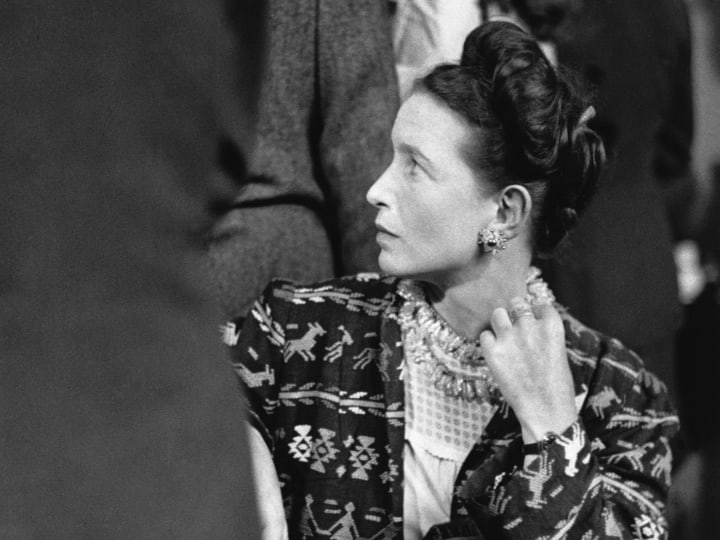
All in all, I spent a few hours just crying over this book and it is slowly becoming one of my favourite books of all time. I absolutely loved it. It was too much emotionally but that is something I will never, ever forget.
About the Creator
Annie Kapur
200K+ Reads on Vocal.
English Lecturer
🎓Literature & Writing (B.A)
🎓Film & Writing (M.A)
🎓Secondary English Education (PgDipEd) (QTS)
📍Birmingham, UK


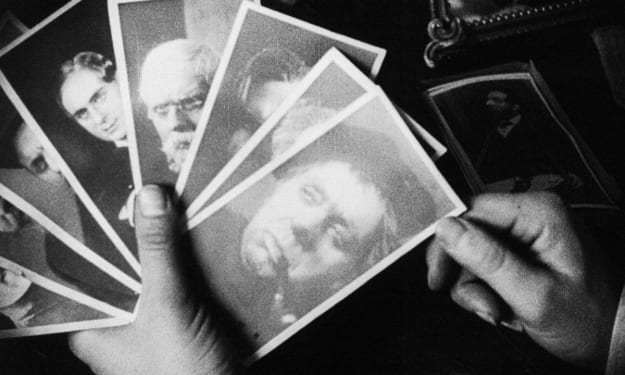



Comments
There are no comments for this story
Be the first to respond and start the conversation.